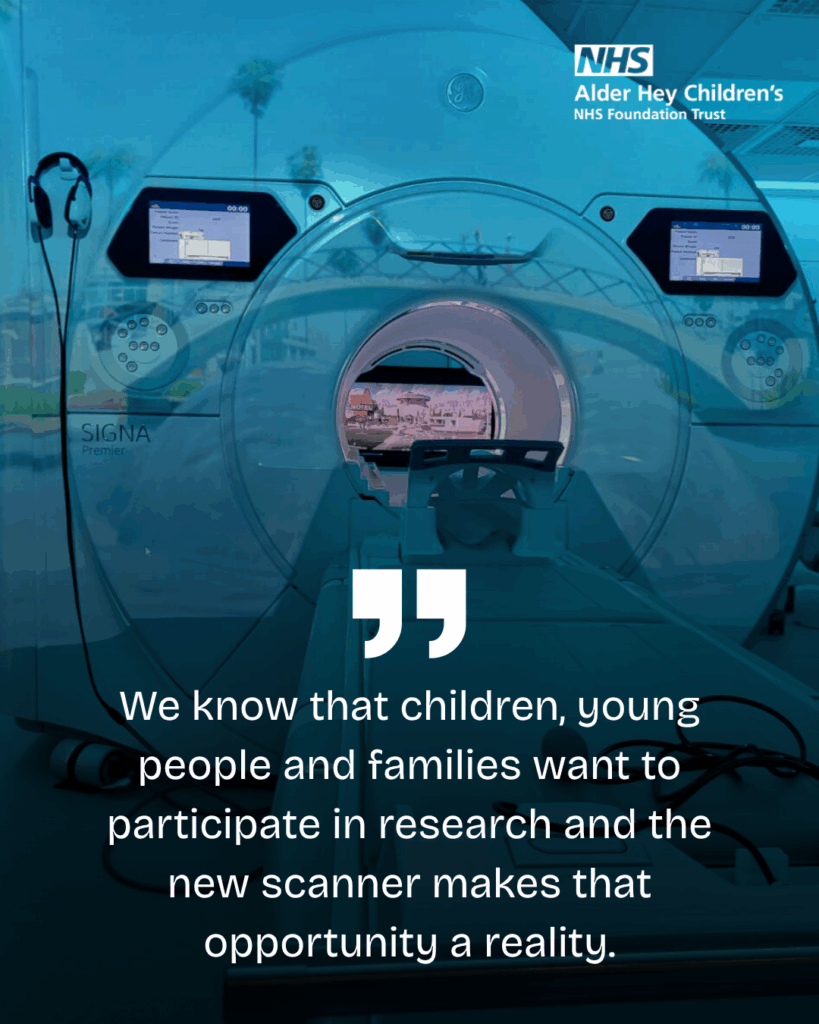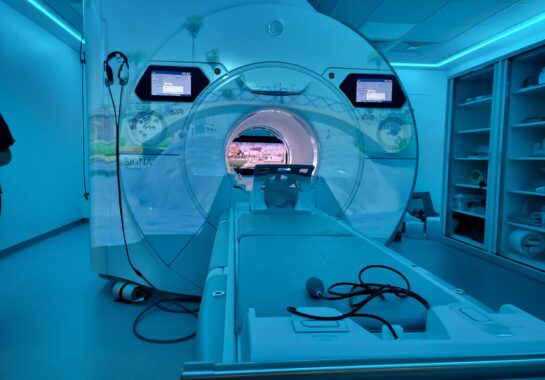Alder Hey Children’s Hospital has become the first paediatric hospital in Europe to install a ground-breaking 3-Tesla MRI research scanner, dedicated to research, a major step forward for medical research in the region and beyond.
This state-of-the-art scanner is only the second of its kind in the world and will provide faster, more detailed imaging and improve patient comfort. It will primarily support research and will be used to improve diagnosis and treatment for patients of all ages, from newborns to older adults.
This new scanner, funded by the National Institute for Health and Care Research (NIHR) offers increased capacity for research scans at a time when clinical demand for MRI continues to grow. Its availability enables researchers to conduct vital studies, including early-phase clinical trials and high-intensity experimental medicine research, without competing with routine clinical imaging needs.
The scanner also strengthens Alder Hey’s ability to collaborate with academic institutions, clinical researchers, and industry partners.
“MRI scanners are a valuable tool for research, but they are often in heavy demand clinically, and therefore not available for research purposes. The new 3-T MRI scanner at Alder Hey means more research for Alder Hey, and as the scanner is available to use for partner organisations such as hospitals, universities and industry, too, they can now work with us on game-changing research.”
Jason Taylor, Research General Manager at Alder Hey
MRI (Magnetic Resonance Imaging) is a safe, non-invasive way to see inside the body, including the brain, muscles, joints, and organs. Unlike traditional scanners, this new 3-Tesla model captures much higher quality images in less time, using cutting-edge hardware and software. Demand for MRI scanners is very high, which hinders the ability to perform MRI scans purely for research purposes. Alder Hey’s new MRI scanner is a huge development for research as it provides extra capacity for research for both adults and children.
MRI’s help identify early signs of disease and understand how differences such as genetics and the environment can influence health which is vital for developing tailored treatments. Because it is non-invasive and doesn’t involve radiation, MRI is ideal for studies involving children and newborns, pregnant women and patients needing repeated scans and is especially important in long-term studies.

Designed with children in mind, the new MRI suite offers a calm, child friendly environment with features such as:
- An immersive scan room with lighting, sounds, and video projections
- In-bore entertainment, allowing children to watch their favourite shows during scans
- Lightweight, more comfortable equipment
One of the first studies will involve scanning newborns during natural sleep to explore how early life and environment affect brain development.
Professor Shivaram Avula, Consultant Radiologist at Alder Hey, said “This new state of the art scanner is a game-changer for imaging and research. It provides us the imaging speed, resolution and flexibility needed to lead the way in studying childhood and adult conditions. It allows researchers to have consistent access to the MRI which has often been limited due to high clinical demand, Magnetic Resonance Imaging is essential for medical researchas it provides high-resolution structural and functional insights into the body which is crucial for tracking disease progression, detecting early warning signs, and evaluating the effectiveness of treatment.”
The scanner is expected to attract national and international collaborations, helping not only local communities but also advancing global medical advancements.
Prof. Avula said ““We know that children and families are eager to take part in research. This scanner gives them that opportunity and helps us build the knowledge needed to improve care for generations to come.”
To arrange a discussion about collaboration or apply for time on the scanner, please visit https://www.alderhey.nhs.uk/research/collaborations/research-mri/
